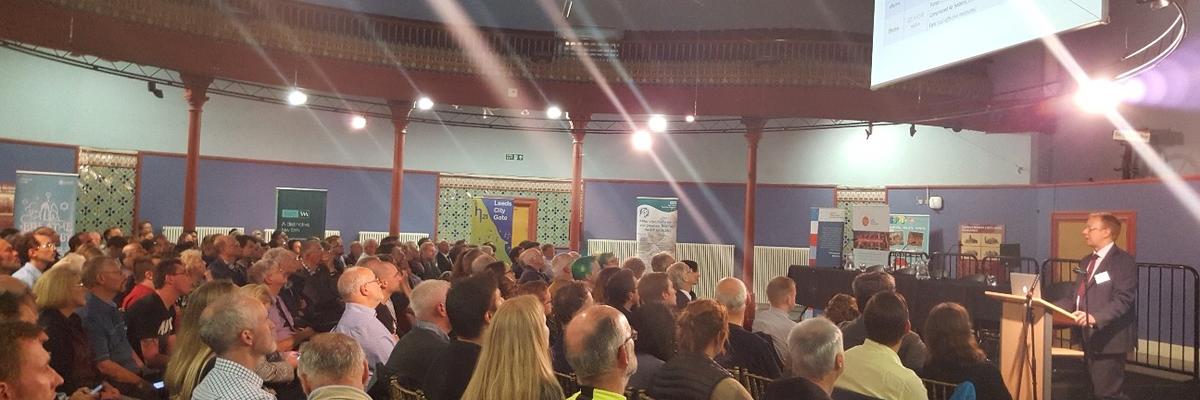Commentary
By Alice Creasy (8 June 2020)
At this time of unprecedented global crisis, the importance of place-based action that encourages collaborative and effective action has never been more pressing. Action plans to address climate change have become pervasive in policies across the UK, however governance of this issue operates through a multitude of different bodies at different scales, with a variety of partnerships and outcomes.
With this in mind, researchers on the Place-Based Climate Action Network (PCAN) team have evaluated existing collaborative climate change strategies currently or previously undertaken within UK cities. This commentary examines the five ‘typologies’ of climate governance that have emerged from this research before exploring their relevance to future “climate commissions” of the type that have emerged through PCAN.
Independent groups, such as the Manchester Climate Change Agency, are organisations which most closely reflect the aims and governance structure of PCAN Climate Commissions in Edinburgh, Belfast, Leeds, Lincoln, Surrey and Croydon. Acting as independent voices on climate change in the city, they bring together a diverse range of organisations and actors from across the city in order to inspire and inform place-based climate action.
Expert-led groups, such as The London Climate Change Partnership (LCCP) are often created by local or national governments in order to advise decision-making surrounding climate change within the public-sector. Their work is therefore closely tied to these bodies, both in terms of funding and research focus. These organisations are made up of a small number of individuals from different sectors who have expert knowledge and experience in a particular area.
Organisations within the Local Authority archetype, (e.g. Lancaster Climate Change Cabinet Liaison Group) are closely tied to city councils. While expert-led groups include only a few select individuals, a primary goal of these organisations is to create open groups of external actors, including members of the public, to advise on local authority planning.
Networks of third sector organisations operate within many UK cities (e.g. Derby Climate Coalition). Bringing together a diverse range of environmental groups, these networks help to facilitate action at a local, regional and national scale, often raising funds through donations and fundraising events.
Climate governance beyond the city, such as Bright Green Business, utilise existing networks to maximise engagement. This archetype acknowledges the work of regional and national climate partnerships and their relevance to place-based climate action. In doing so it draws on the work of private sector organisations as well as more recent agendas that seek to engage businesses and industrial sectors in place-based change.
What are we learning?
As place-based climate action emerges as a key area for climate change governance, there are a number of strengths and weaknesses to consider.
Firstly, funding and independence. For climate commissions seeking to be an independent voice on climate change, a certain degree of separation from local authorities is important in creating an equal space for collaborative decision-making. Independence gives commissions the scope to look beyond political decision-making and engage with organisations and actors from across the city, giving all sectors an equal opportunity to be represented.
However, while independence is key, it is important to acknowledge that local authorities are key partners to collaborate with on both the core aims of the commission and provide access to a wealth of knowledge and networks.
Secondly, facilitating and attracting a representative range of sectors from across the city is important in building a relevant and collaborative body. The creation of a diverse network will also help to gather different experiences and perspectives of the city alongside opening doors to new partnerships and funding opportunities for members. With this in mind, inviting a range of sectors to be involved at a core level of the partnership will help to maintain meaningful engagement.
Thirdly, engagement across the city is key. Within all cities there already exist organisations which engage with the issue of climate change, providing important allies for the commission. With regards to citizen engagement, many city residents are unable or unwilling to commit their time to regular meetings and so, implementing an accessible platform for participation could be an important way of hearing from a wider range of people. In Leeds, for example, public engagement campaigns and online surveys have helped to shape the direction of the Commission, whilst in Croydon two members of the Croydon Citizen Jury have been invited to join the Commission.
Fourthly are scale and focus. While 'expert-led' and 'local authority' groups often have a clear brief and structure as they work to advise the needs of an established public body, independent bodies collaborate with a range of different organisations to agree on their own objectives and governance structure. Although creating an open and collaborative group is key to the work of climate commissions, maintaining direction through small representative steering groups is vital. These groups can provide advice and support to the wider network and ensure that its activities align with broader objectives.
Finally, funding is important to maintain momentum and ensure that meaningful action is taken. Not only important in attracting membership and facilitating action, sufficient funding to employ staff members makes a significant difference to the impact of an organisation.
Recommendations for future commissions
The research on which this commentary is based provides a rich set of recommendations on how climate commissions can be established building on the range of rich existing models across the UK. These include:
- Utilise existing networks to maximise engagement: The integrity of future climate commissions rests on ensuring representative, diverse and meaningful cross-sector engagement with the issue of climate change. Recognising the existing work being done by groups, organisations and networks within the city will help future commissions to create effective objectives that engage with and build on existing action.
- Secure financial plan. Financial independence is key for climate commissions aspiring to be an independent voice advocating for climate change action within the city. A diversity of funding streams will help maintain a greater degree of independence whilst ensuring future Commissions are financially resilient. Secure and meaningful funding will help to drive engagement and create employment opportunities.
- Engagement with the city beyond the bodies present on boards and in meetings is important for creating a representative and effective Commission. Constructing online engagement platforms alongside social media streams will help to generate fresh ideas, empower individuals and ensure more representative and relevant decision-making.
- Clear focus and governance structure. Bringing together a representative coalition of actors is challenging, particularly when each may have different ideas about the type and scale of action that is needed as well as the methods for realising this action. The creation of a small, representative governing body would help to maintain the focus of the broader group.
Alice Creasy is a researcher at the University of Edinburgh. Based in the Edinburgh Centre for Carbon Innovation, her Masters thesis (which she is writing alongside her work with PCAN) will focus on the development of the Edinburgh Climate Commission.


